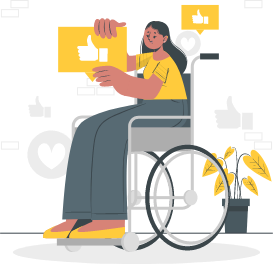
Education
Although public schools are often overwhelmed or underfunded, it is clear that they have an obligation to provide for students with disabilities. The Individuals with Disabilities Education Act (IDEA) is a law that requires a free and appropriate public education for eligible children with disabilities throughout the nation. Currently, IDEA governs how states and public agencies provide early intervention, special education, and related services to more than 7.5 million eligible infants, toddlers, children, and youth with disabilities. From birth to age two early intervention services are provided under IDEA Part C. From ages three through 21 special education and related services are available under IDEA Part B.
IDEA requires educators to develop individualized plans and goals for students with disabilities. This is called the individualized education program (IEP). The IEP describes the goals the team sets for a child during the school year, as well as any special support needed to help achieve them. While schools are obligated to find children in need of such programing, they sometimes fail to do so.
If you have any questions about accommodations in an educational setting, an initial 10-15 minute consultation will be provided at no charge. Even if you decide not to hire Undaunted Law Firm, recommendations of free resources are also available. Please reach out if you have any questions about your educational goals or opportunities.On This Page
Public schools are required to support students with disabilities. First, they must identify students with disabilities or learning differences. Second, they must make an plan, called an IEP. The IEP will set goals and identify supports for that student. Third, they must follow the plan. Other schools also have obligations to remove obstacles for students with disabilities.



 Free Consultation
Free Consultation info@undauntedlaw.com
info@undauntedlaw.com +1 (844) ADA-IDEA
+1 (844) ADA-IDEA 